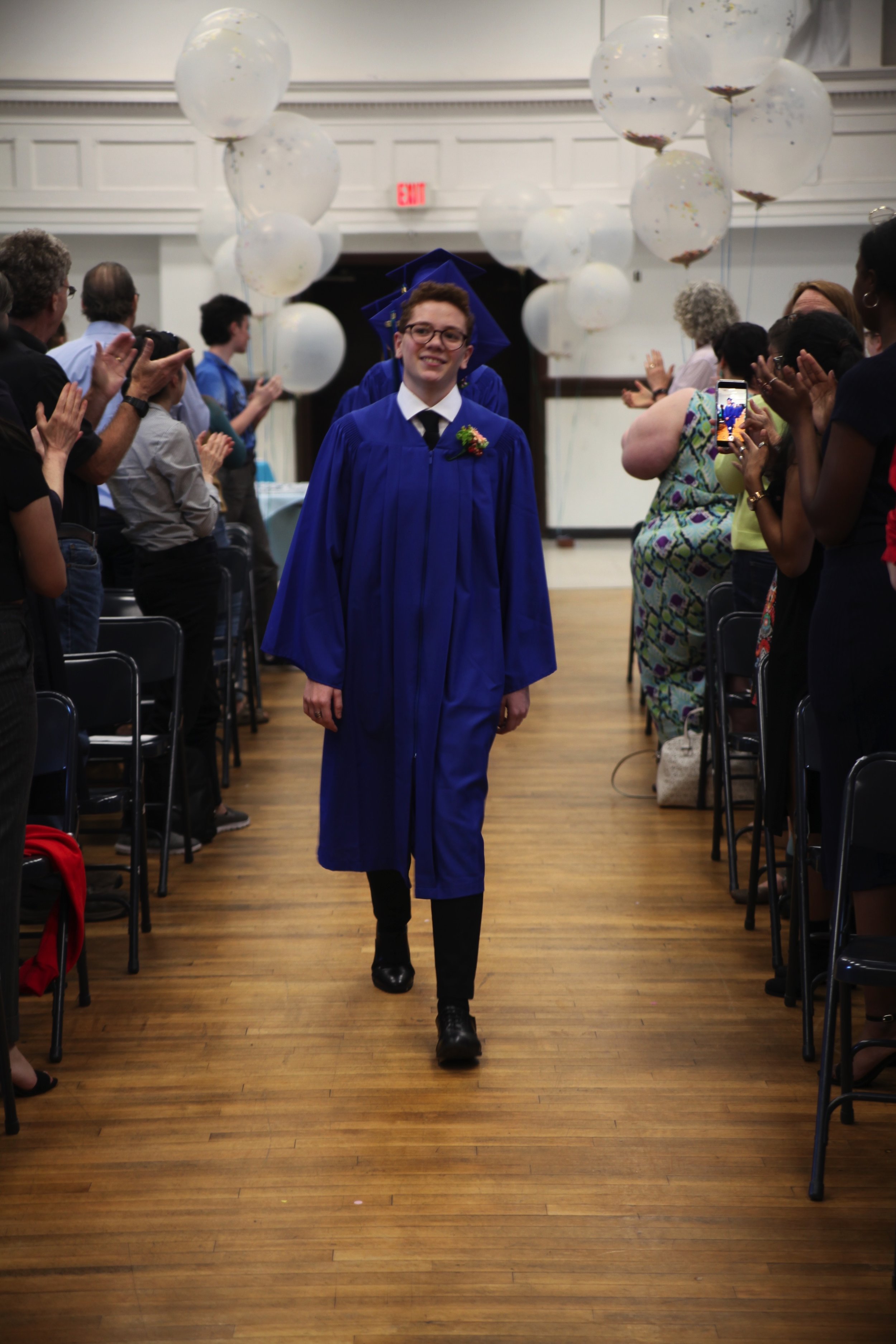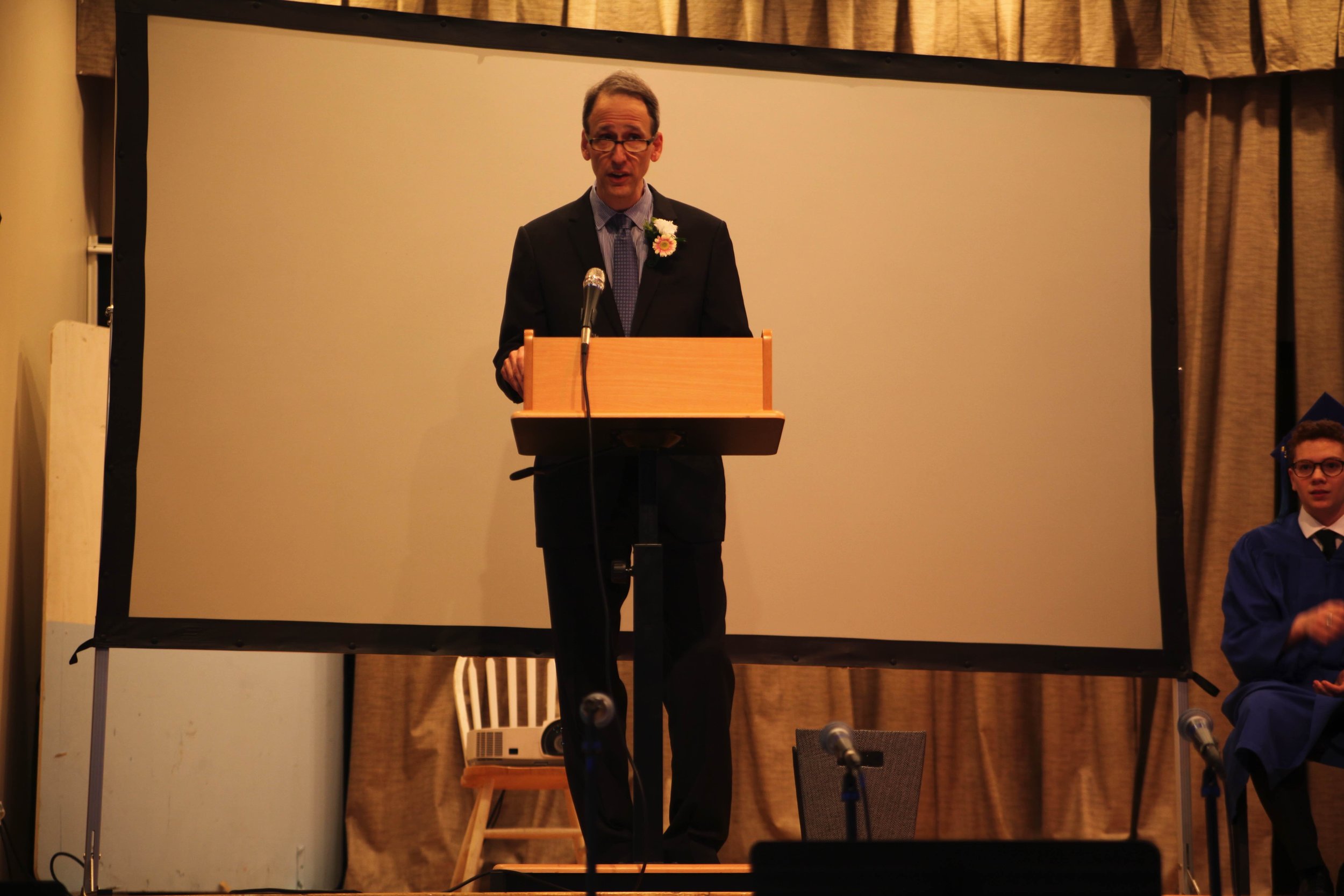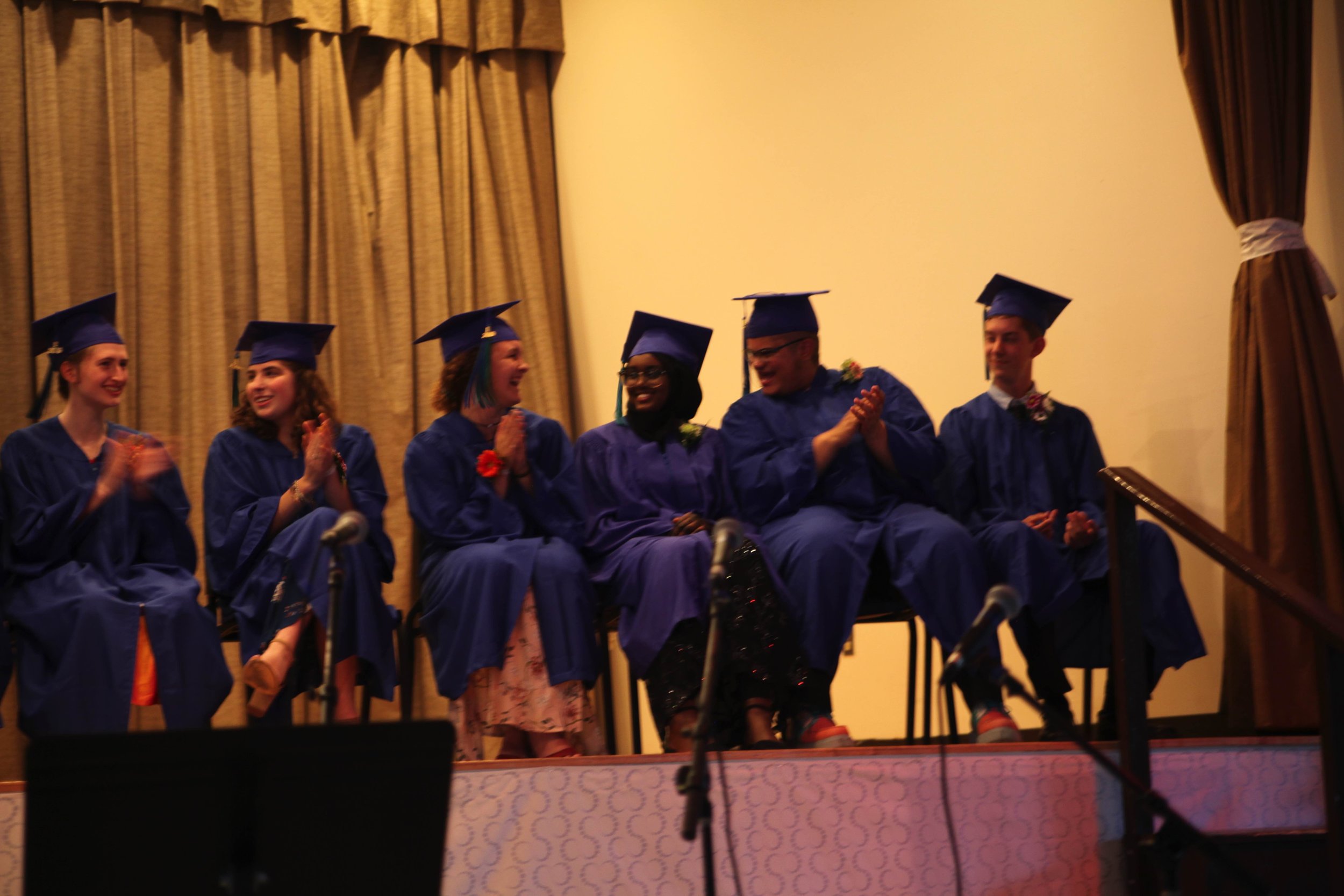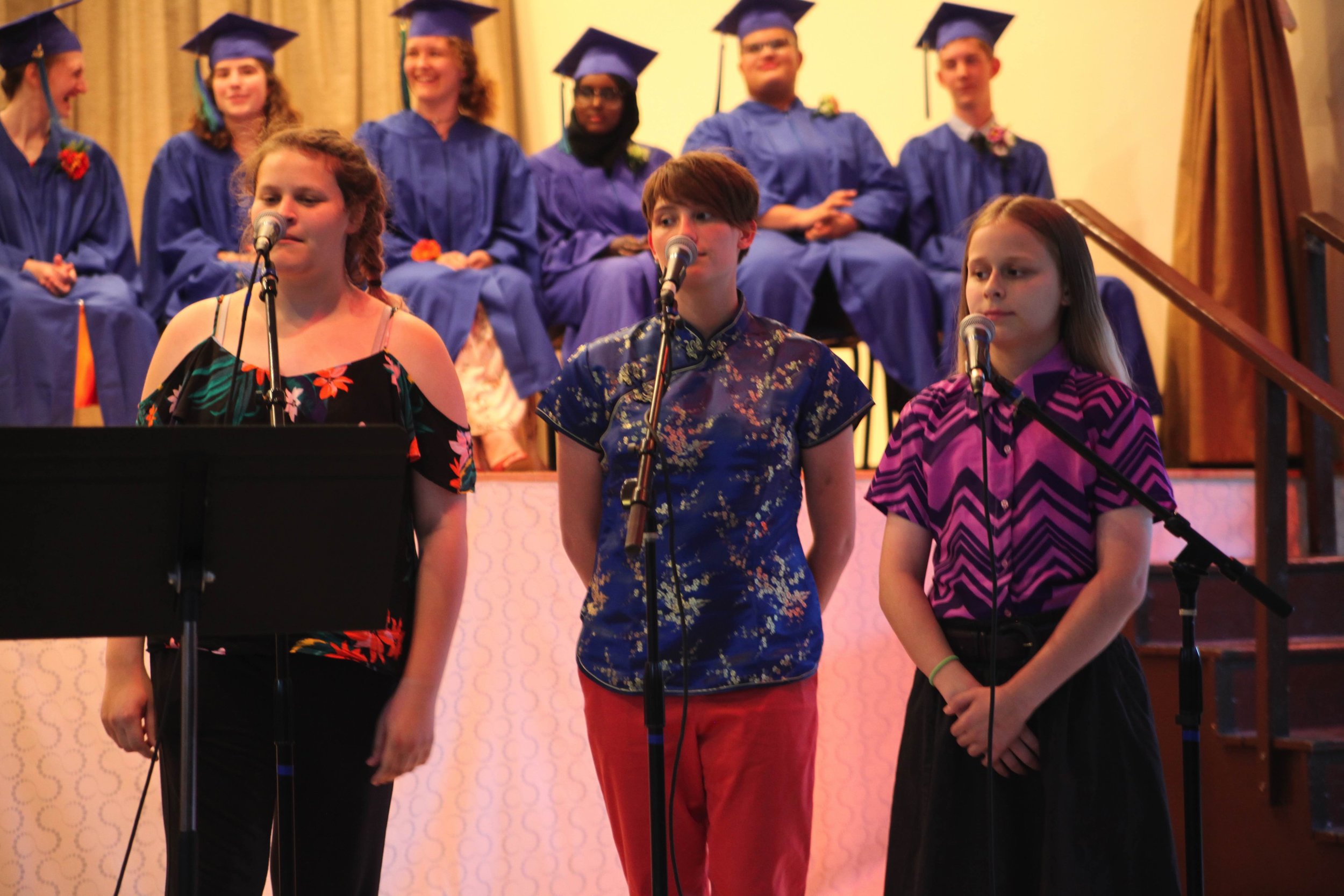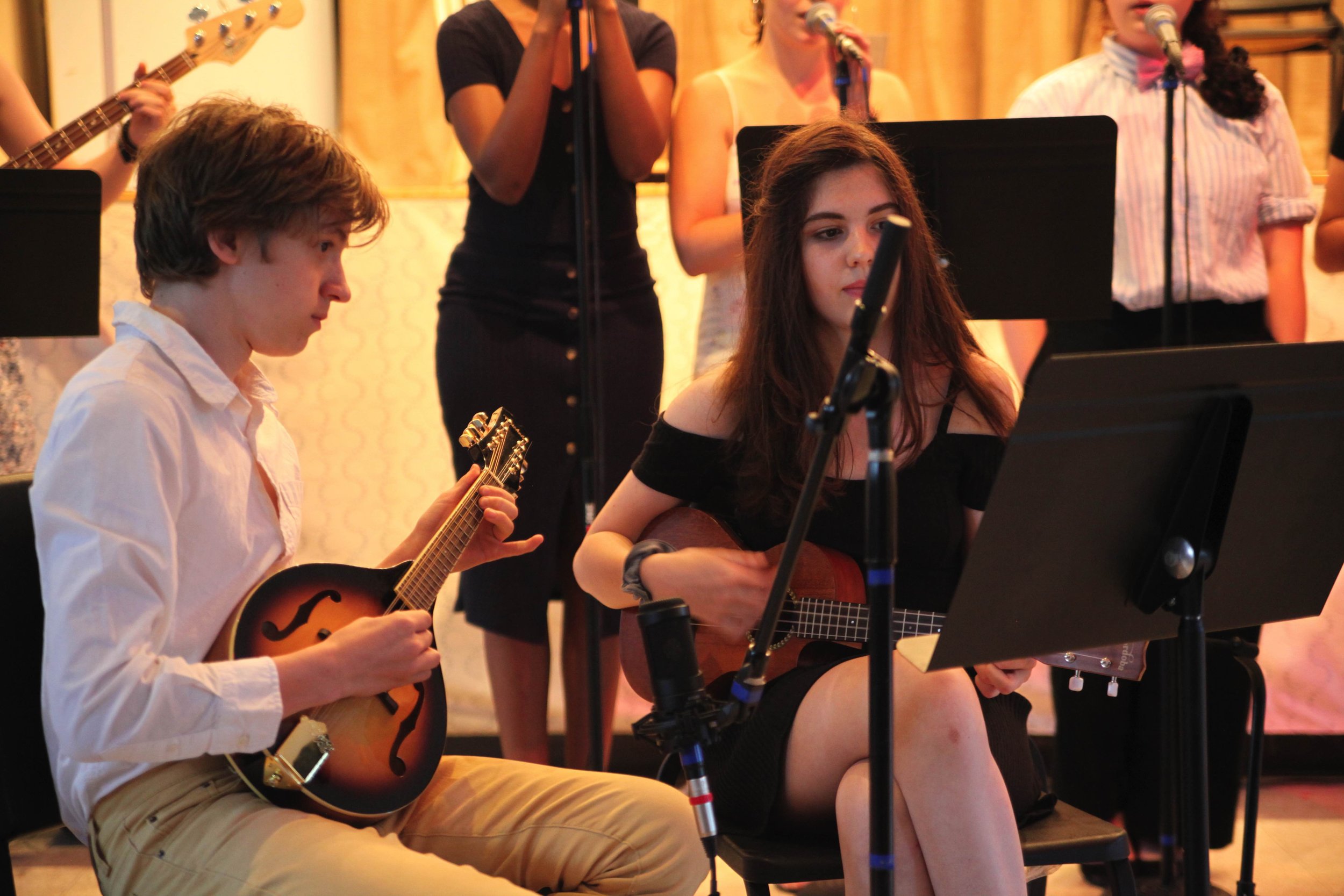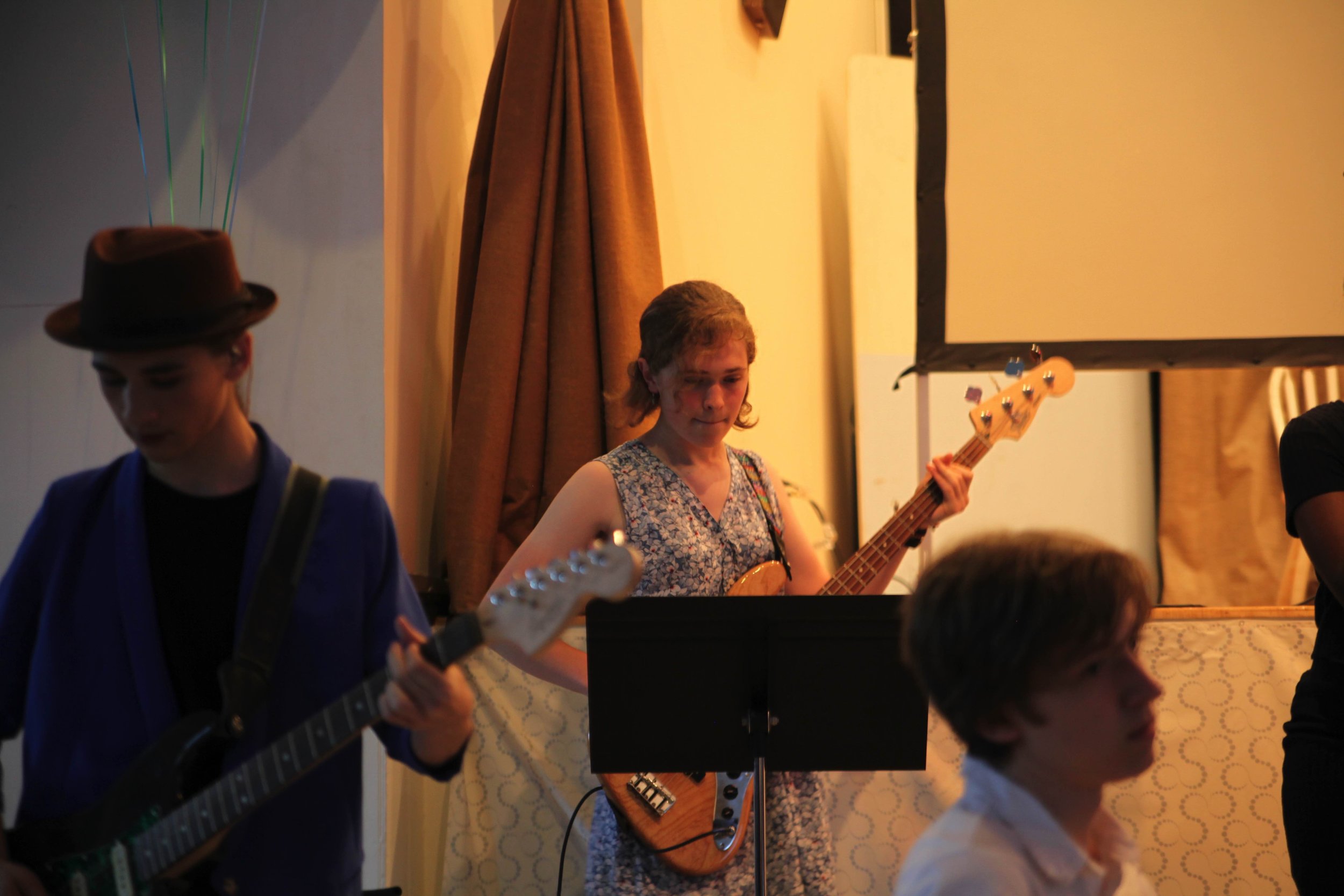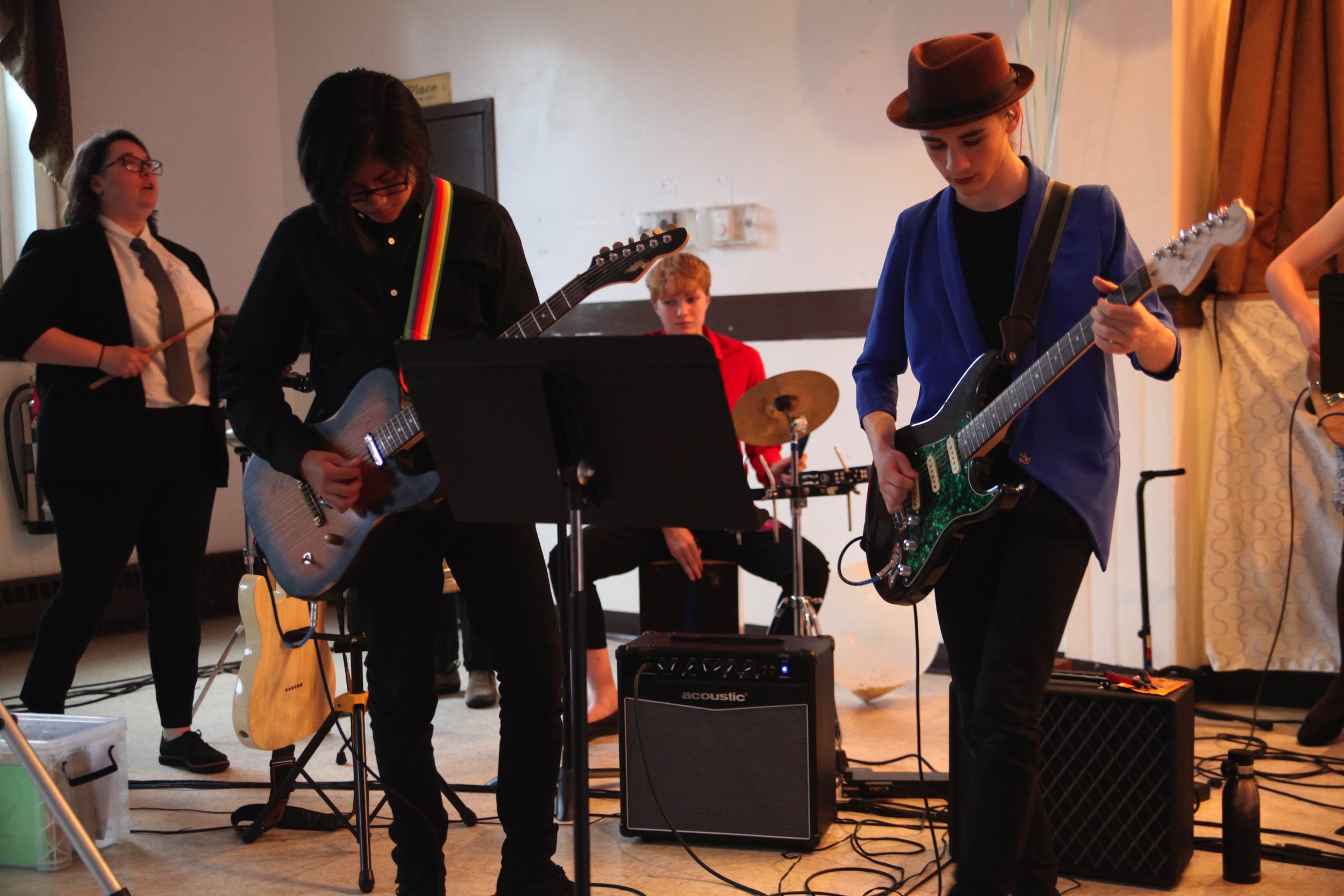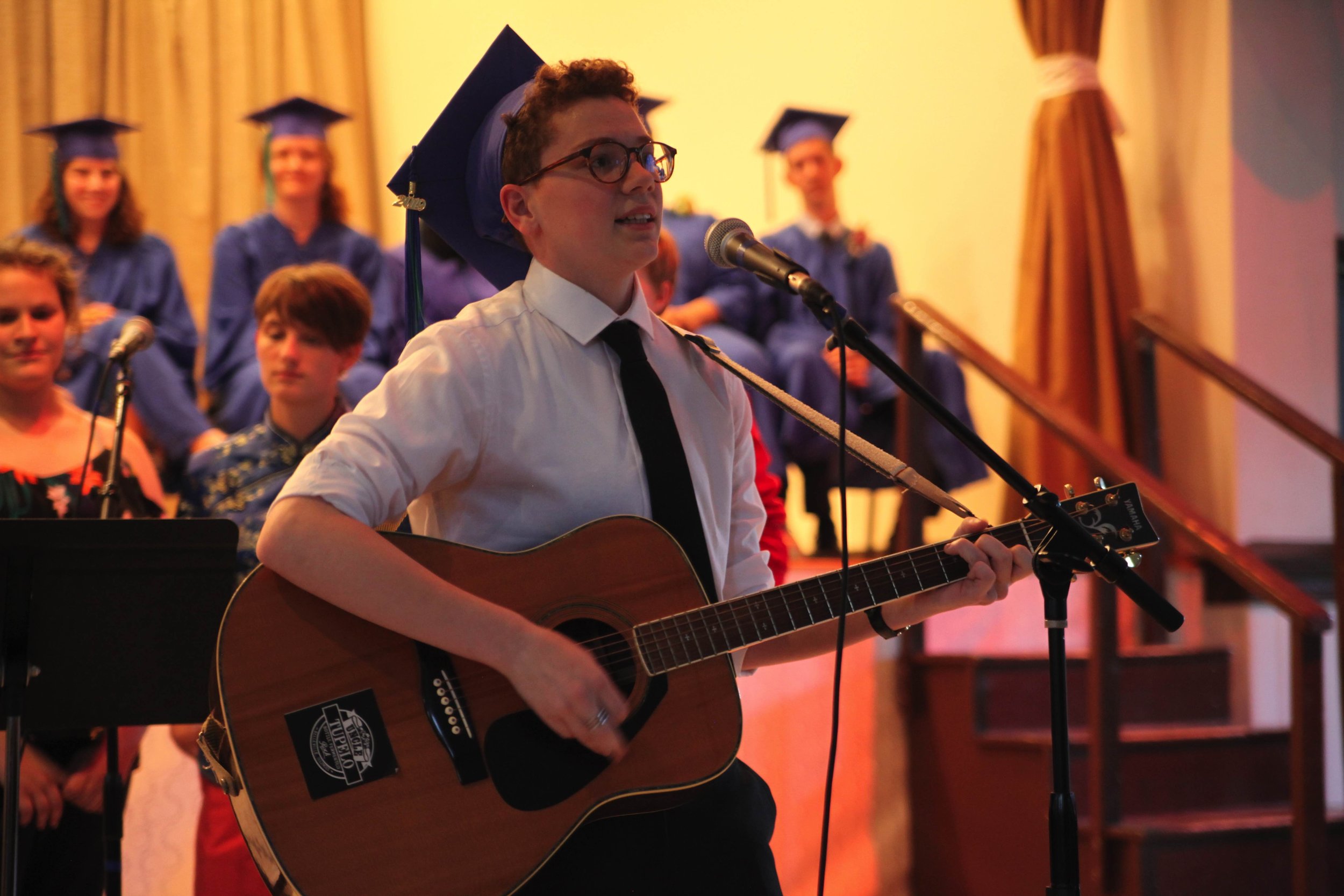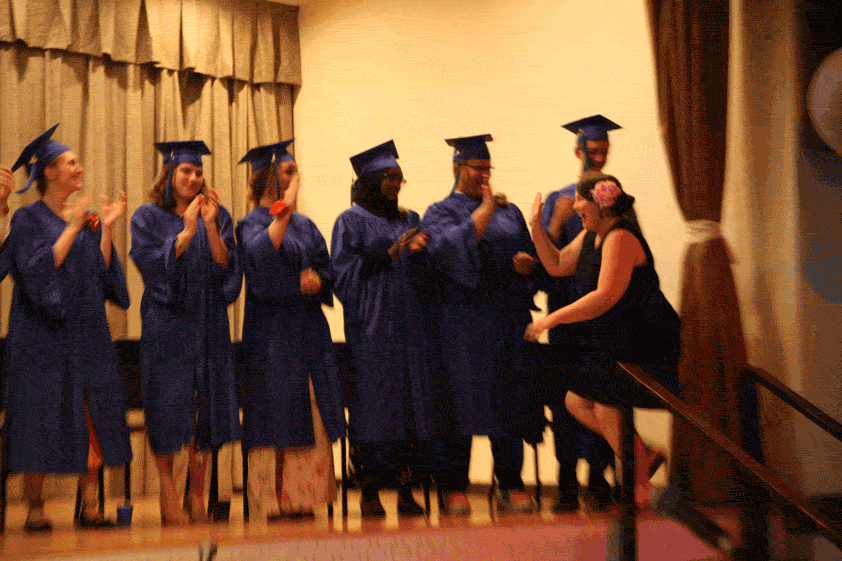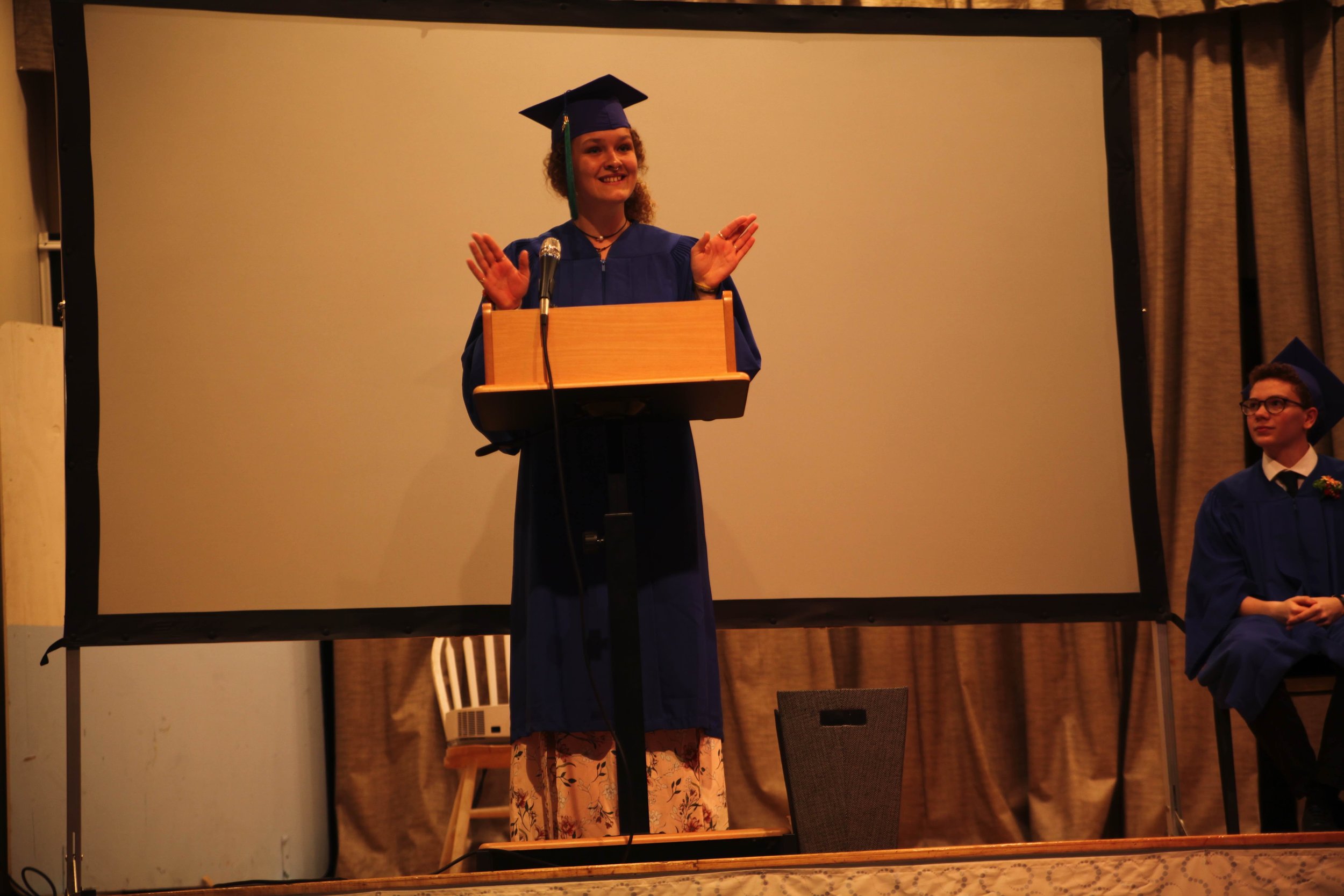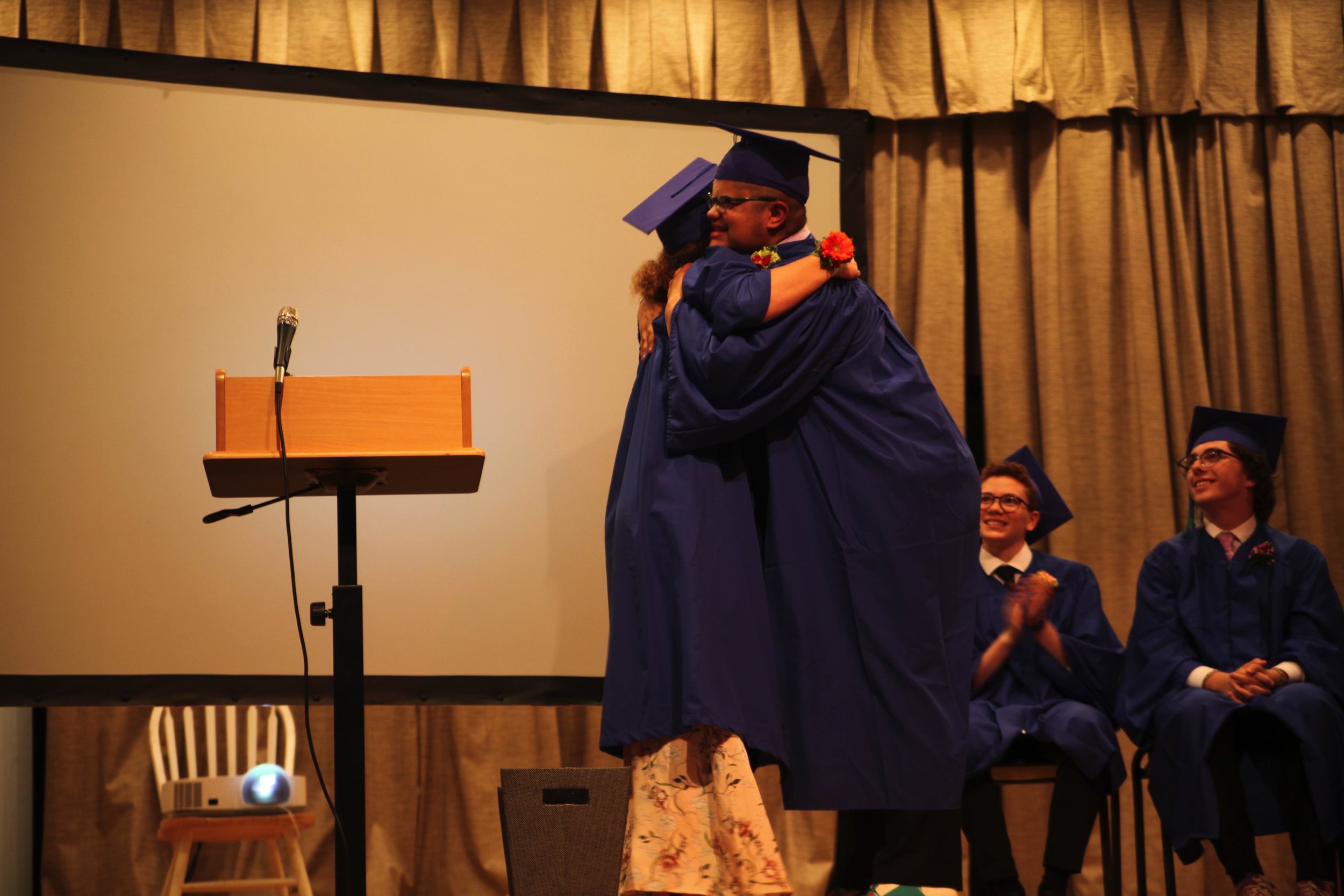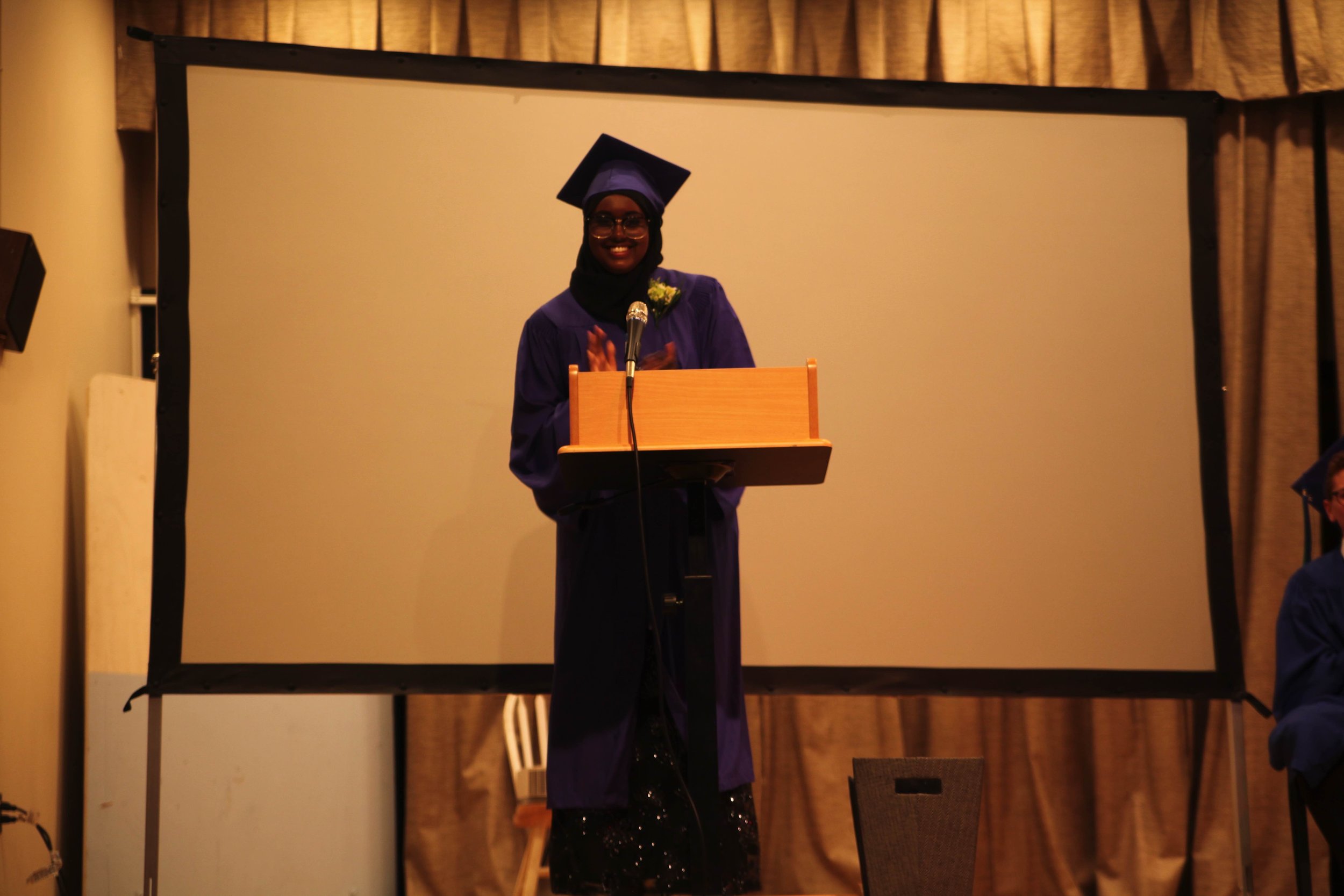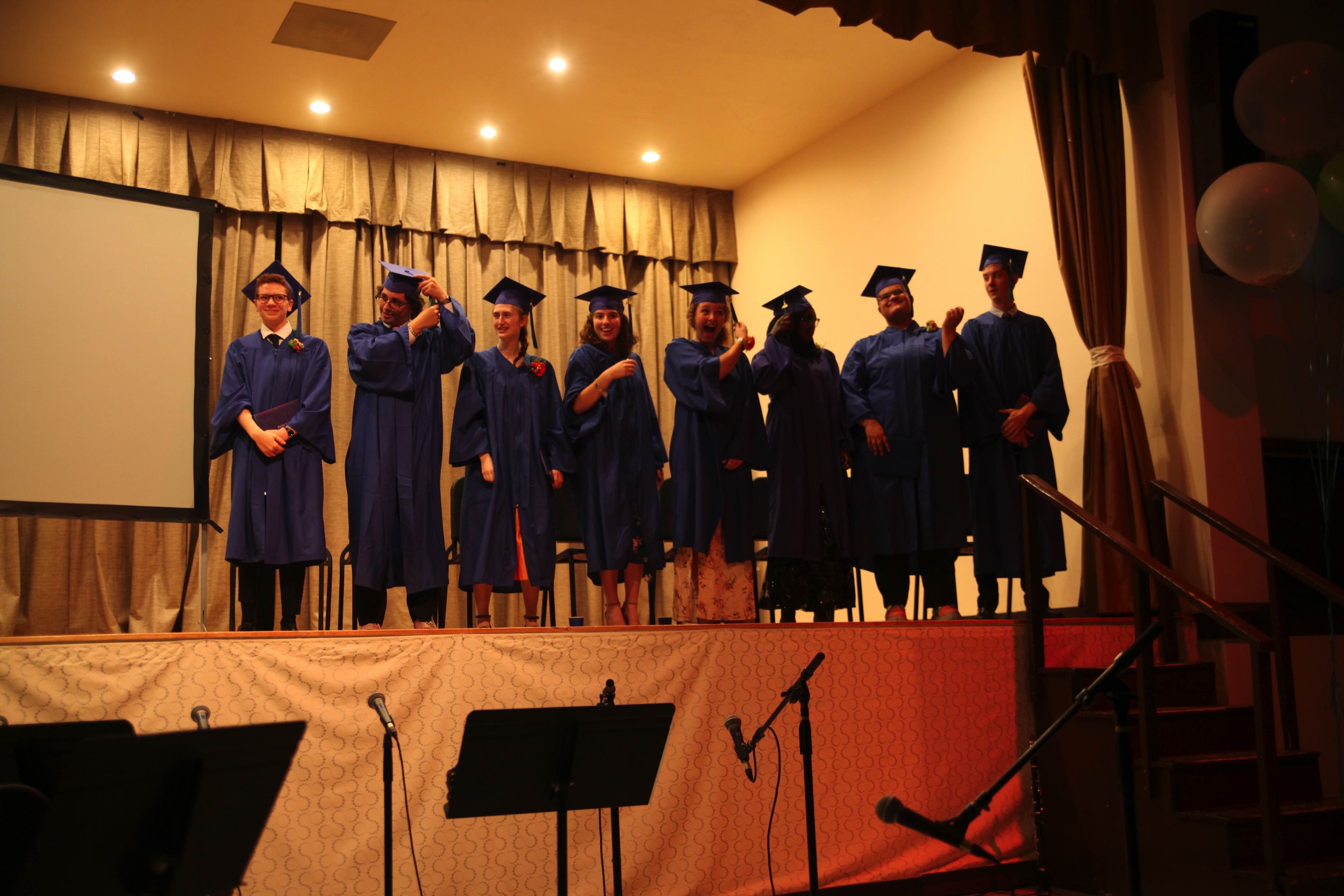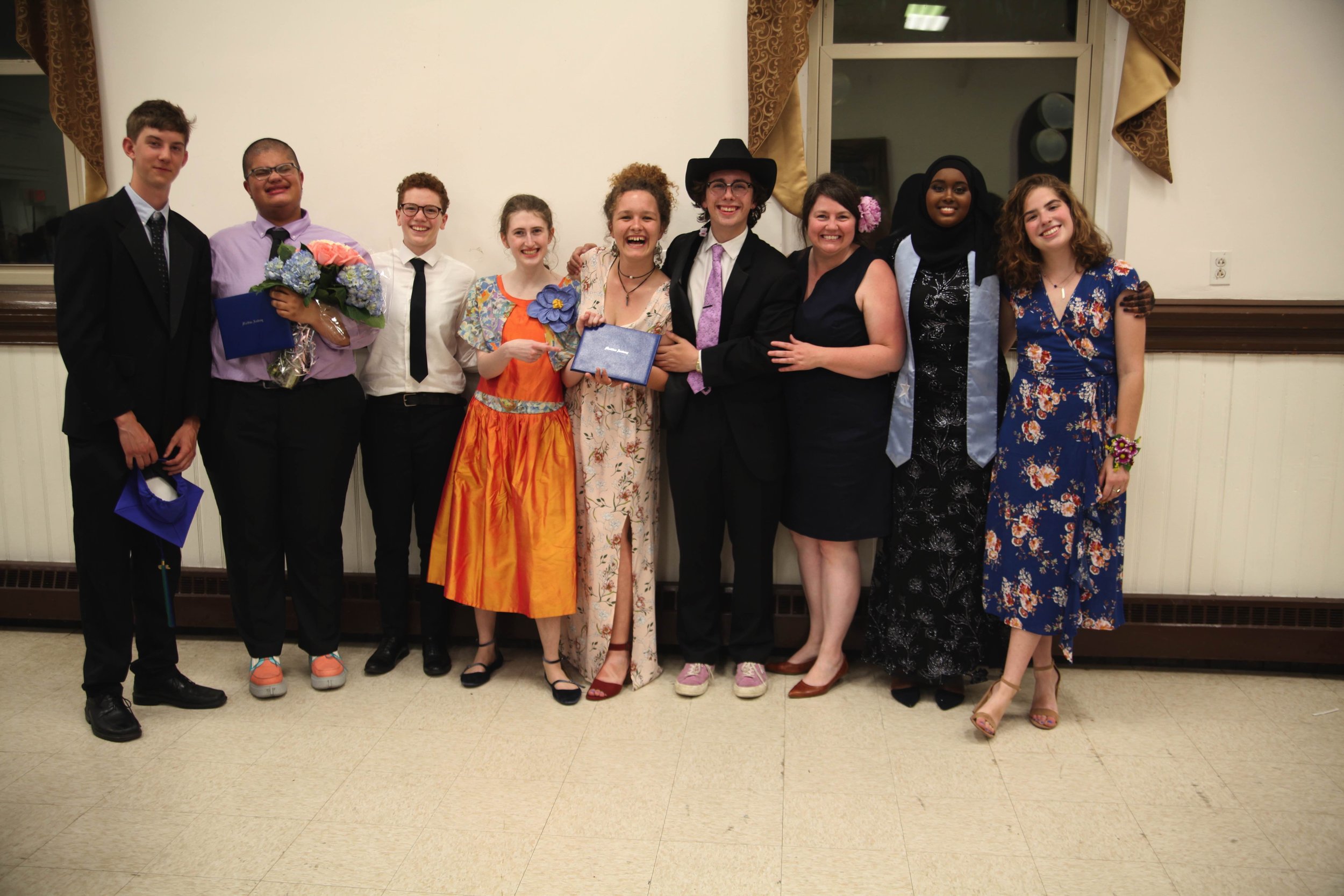Ordinary Joy: Graduation 2019 Keynote Address
By Catherine Epstein
When I learned that I would be giving the commencement speech for the class of 2019, the very first and most lasting thought that came to my mind was: I need to talk about Division 4 drumming class.
I wondered for many weeks why this felt like the most urgent subject to discuss with you tonight. Why did playing Wes Anderson title themes and Sufjan Stevens-Coldplay mashups feel so significant?
After some reflection, the reason, as far as I can tell, is because it gave me access – on a consistent weekly basis – to joy.
“Joy,” at least, is the best word I can come up with to describe the unique sensation I felt on Monday mornings in Laura’s room when, along with several of you, I got the chance to play the snare, the tambourine, or – on especially lucky days – the triangle.
So what was this joy? And why did it feel so profound, so distinct and, strangely, so necessary? Tonight, I’d like to use this time to examine these questions with you.
First, the transcendence I experienced in drumming class felt unique in part because it seemed to arise from a contradiction. Joy didn’t seem to come because I was actively seeking it out, but rather because I was not. It’s very difficult, after all, to think about yourself and your desires when you’re trying to hold down the beat on a cowbell.
Here, I should say that this particular aspect of joy does not come easily to me. I worry a lot, and I like to maintain control over myself and my surroundings. Drumming, on the other hand, requires immersion in a piece of music and a group of people. It forced me to surrender control and listen to what we were making together, rather than the litany of worries in my head.
And I think it is this letting go that allows joy to surface. In his memoir, musician Jeff Tweedy writes that “Music is most magical when everyone can lose the burden of self and be put back together as a part of something bigger or other.” Perhaps this is what drumming gave me access to, in the same way that theater rehearsals and walks outside and teaching do: losing the burden of self.
In describing the deeply bonded communities that form in the wake of disaster, writer and activist Rebecca Solnit builds on this observation. She says: “there’s a kind of self-forgetfulness and a sense of having something in common that brings joy.”
I appreciate Solnit’s use of the phrase “self-forgetfulness.” How curious and counter-intuitive that it is not when we turn attention toward ourselves, but rather when we forget ourselves through action, through community, and through creation, that we cultivate joy.
I’ve also found that joy is, importantly, distinct from happiness. In an interview, Solnit said, “This notion that happiness should be a steady state seems destined to make people miserable. And joy is so much more interesting, because I think we’re much more aware that it’s like the light at sunrise, or the lightning — that it’s epiphanies and moments and raptures, and that it’s not supposed to be a steady state, and that’s OK.”
Naturalist and environmental writer Michael McCarthy expands on Solnit’s idea, saying of joy: “It’s not the same as fun, or even delight. We don’t use it to define our pleasure in eating a particularly well-made pizza. But we might well think it was appropriate to describe the feelings of a parent finding a missing child...All I say is that joy looks outward to another person, to another purpose; and I say that joy has a component, if not of morality, then at least of seriousness.”
McCarthy’s point took me aback at first because I’ve often thought, and still sometimes think, that joy is essentially a luxury – a sensation reserved only for those who have the time and energy for gratuitous feelings. But I’ve come to believe that it may be patronizing, and perhaps dangerous, for us to perceive it this way.
In the 1990’s, the city of Sarajevo in southeastern Europe endured the longest siege of a capital city in the history of modern warfare, lasting for almost four years. During that time, the philosopher, writer, and political activist Susan Sontag traveled to the city in the hopes of providing assistance. The people she met there asked her what she could offer, and she began by telling them that she had some paramedic skills, and that she could type and teach. Eventually, she mentioned that she also directed theater, and they told her she should do that. She said, “But you don't have theaters, you just have bombed places.” They responded, “We're not animals you know, we're not people just standing on water lines and bread lines and cowering in basements during the shelling and the sniping. There was theater in Sarajevo before the war. There should be theater now.” Reflecting on the experience, Sontag said, “We performed every day for about six months and people came. People came through the shelling and the bombing. It was risking their lives to come to the theater.”
What I take from Sontag’s experience is that when we perceive joy – joy in that sense of collective transcendence – as a luxury, we may deny its existence, or its function as a necessity, in people we have deemed too desperate. Sontag’s time in Sarajevo demonstrates to me that not only is there no such thing as someone too desperate for joy, but that we may deny another person’s humanity when we assume that to be true.
I’ve also wondered whether joy functions as a distraction in times like ours, when we are called to resist injustice, dishonesty, and sorrow on such a great scale. What can possibly be the role of joy during times like these?
In an interview, the late poet Mary Oliver seemed to respond to this question when she argued: “People have forgotten how to be ecstatic, and ecstasy is very important. It’s the balance, I suppose, with the feeling of rage or emptiness. Emptiness is never gonna make us get up and do anything. But ecstasy might.”
In a similar vein, Solnit writes that “Joy doesn't betray but sustains activism. And when you face a politics that aspires to make you fearful, alienated, and isolated, joy is a fine act of insurrection.”
Oliver and Solnit remind me that it is of great interest to autocrats, after all, to keep their citizens feeling paralyzed and hopeless. And they also help us see that, when we submit to this worldview, we lose the capacity for resistance. Joy not only gives us the energy to do so, but serves as a reminder of our shared humanity – of what it is we’re fighting for.
While I have come to perceive joy as an animating force, I have not found that its purpose is to lessen sorrow or anger. In fact, joy may amplify those emotions when they come. If we let ourselves take joy in the people, places, and experiences we love, it is likely that we will feel the weight of their absence that much more profoundly.
In this way, I’ve found that joy can be terrifying, and we may actually find ourselves attempting, however subconsciously, to ward it off. Joy requires that we open ourselves, and when we do that, we simultaneously make ourselves vulnerable to other feelings like loss, impermanence, and grief.
As many of you know, I am fond of reminding actors of something before their second – which translates, at Meridian, to “closing” – night of the play: I point out that this will be the last time they have the chance play these particular characters in this particular production. On more than one occasion, one actor or another has met this reminder with a severe look and a pointed comment: “Thanks for ruining it, Catherine.”
And I can see what they mean. It may sound as though I’m asking actors to mourn the play rather than enjoy the moment. But I’ve found that one way to access joy is to remember impermanence. There is something about knowing that an experience will end that compels us to open ourselves more to it.
This is a valuable practice because, after all, we do lose things. You are, at this very moment, leaving high school behind. And, as I’m sure many of us in the room reflected watching you process down this aisle, we are losing you. There’s something about loss that helps us take in joy, and tonight is one of those moments. Perhaps that is what feels so singular and rich about traditions like these. We feel, however impossibly, loss and joy at the same time.
I have loved witnessing your growth over the past many years. And in more ways than I can articulate – your service to others, your unbounded energy and generosity, your love of science and teaching, your zeal for weird art, your deep ethical curiosity, your passion for cats, your devotion to mammoths and subway pigeons, your beautiful, personal songwriting – in all of these ways, you have been my teachers when it comes to joy.
And that means you already know how to cultivate it. Your joy may not look like playing the triangle in a Sufjan Stevens-Coldplay mashup, but when it hits you, it will be just as strange and unexpected and ordinary. I encourage you to pay attention to these moments. Notice how they allow you to lose the burden of self, connect with others, incite you to action, and place you more firmly in the present moment.
The great writer Audre Lorde said, “Tomorrow belongs to those of us who conceive of it as belonging to everyone; who lend the best of ourselves to it, and with joy.”
So, my dear class of 2019, I encourage you to conceive of tomorrow as belonging to everyone, to lend the best of yourselves to it, and to do so with joy. Fortunately for all of us, tomorrow does indeed belong to you.

